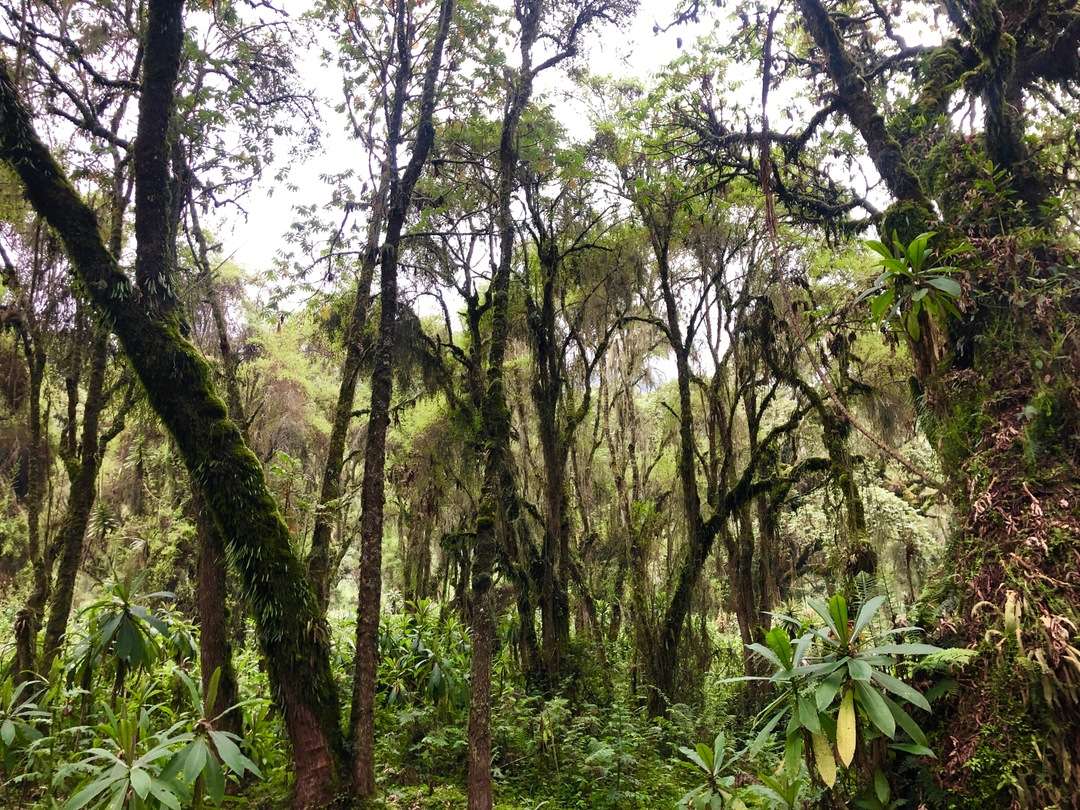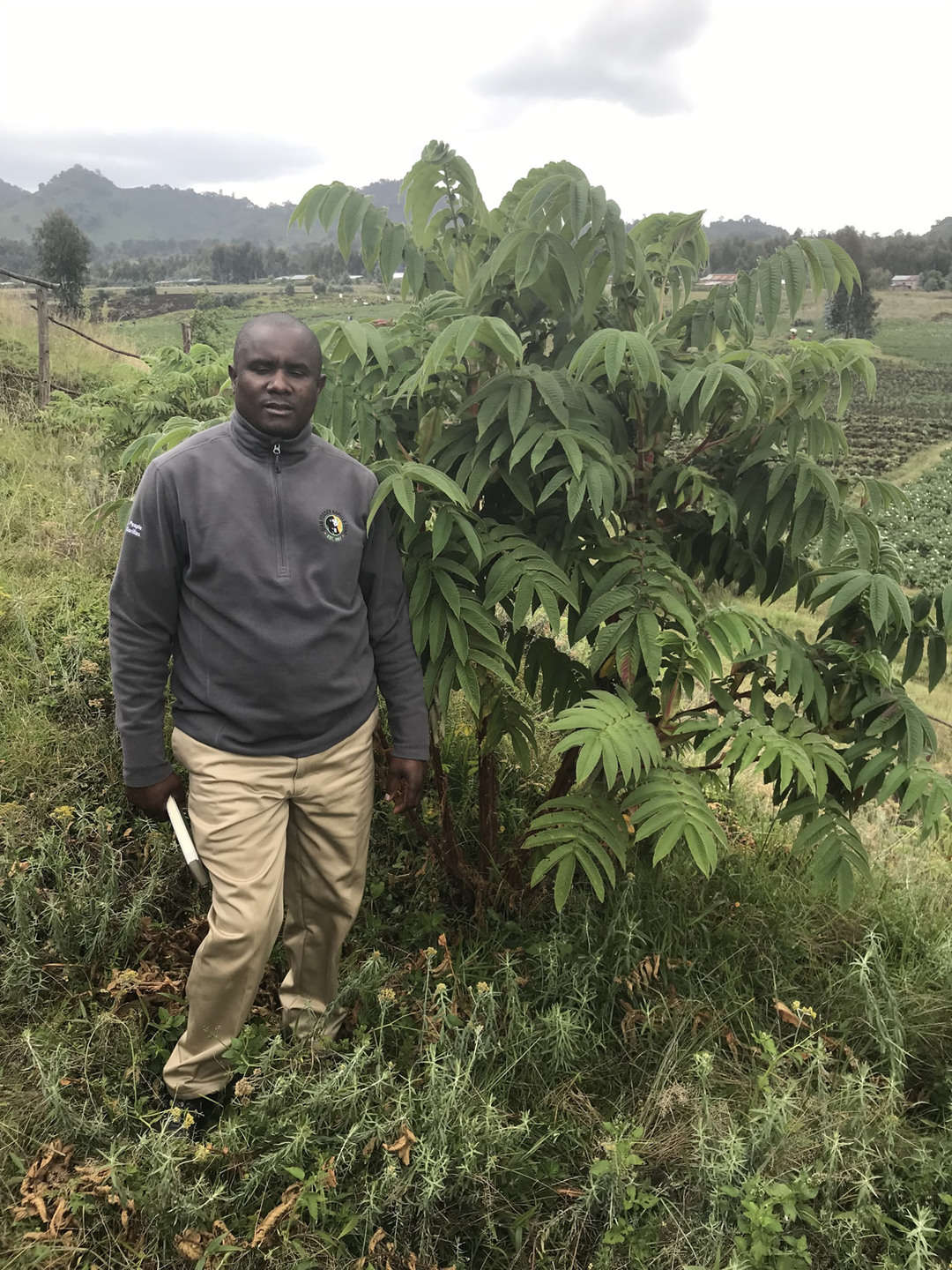Forests are the most biodiverse ecosystems on our planet, holding around eighty per cent of all terrestrial flora and fauna. Forests are not only diverse species hubs, but also our planets ‘lungs’, providing at least one third of the world’s oxygen.
Amongst the different forest types, the tropical forests hold the largest number of species. The Albertine Rift, which is the western section of the East African Rift, contains some of the last large pockets of tropical forest on the continent. It can be classified as a biodiversity ‘hotspot’, containing around forty per cent of Africa’s mammal and bird species and over twenty percent of its plants. One of the key pockets of forest in the Albertine Rift is the Virunga Massif, a range of active and inactive volcanoes which hold the largest remaining population of mountain gorillas and a host of other species, many of which are endemic or unique to the Rift.
Volcanoes National Park in Rwanda decreased in size by almost fifty percent during the 1960s and 70s, to make space to grow an important cash crop, pyrethrum. Along with this, large amounts of eucalyptus and other exotic plants were introduced as building material. These alien plants do not fit into the ecosystem and can be deemed destructive to the habitat of the area. Luckily, a stable Rwandan government has seen a turnaround in attitude over recent years. The sense of urgency to help protect a once dwindling mountain gorilla population has seen populations recover in the Virungas.
In a 2018 census, mountain gorilla numbers reached just over a thousand individuals, and the IUCN has reclassified them from ‘Critically Endangered’ to ‘Endangered’, something positive amidst more typically negative headlines in the natural world.
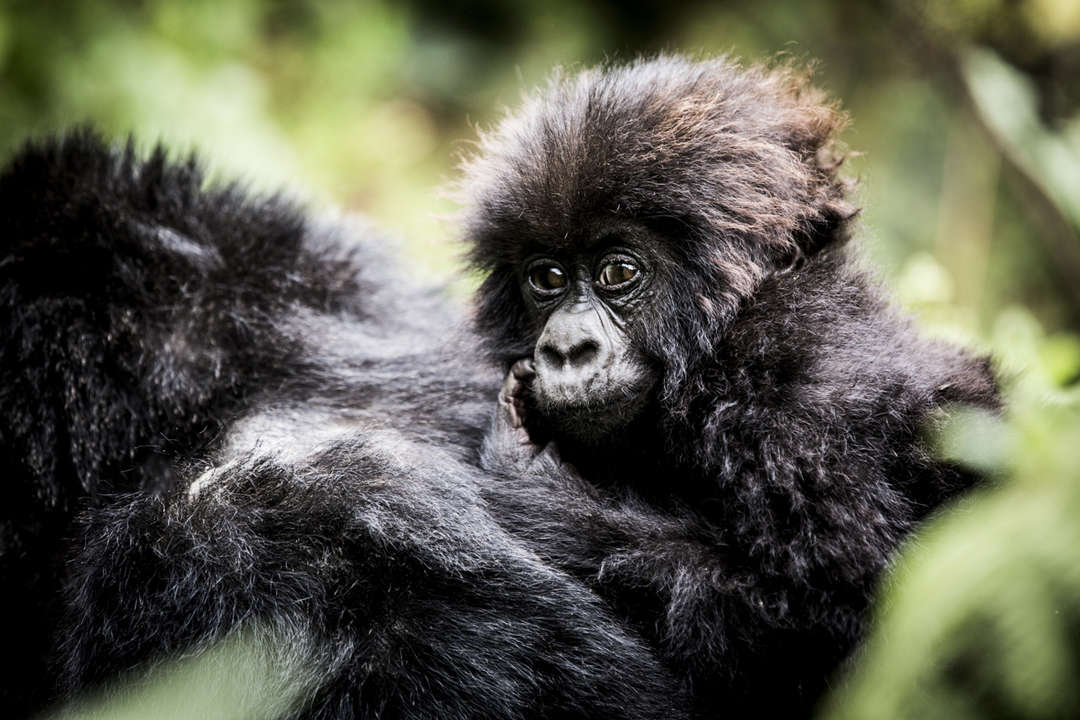
The challenge now is available habitat. The growing population has meant that the density of gorillas in the park is high, as is their competition for food. Putting families into such close proximity to one another has seen a significant climb in infant mortality and limited available habitat also means that gorillas are very susceptible to disease. A plan has been put in place for the next ten years to expand the boundary of Volcanoes National Park and increase its size by around twenty percent. It is an ambitious project and cannot be done by the government alone; philanthropy through private companies such as Wilderness Safaris will also play a very large role.
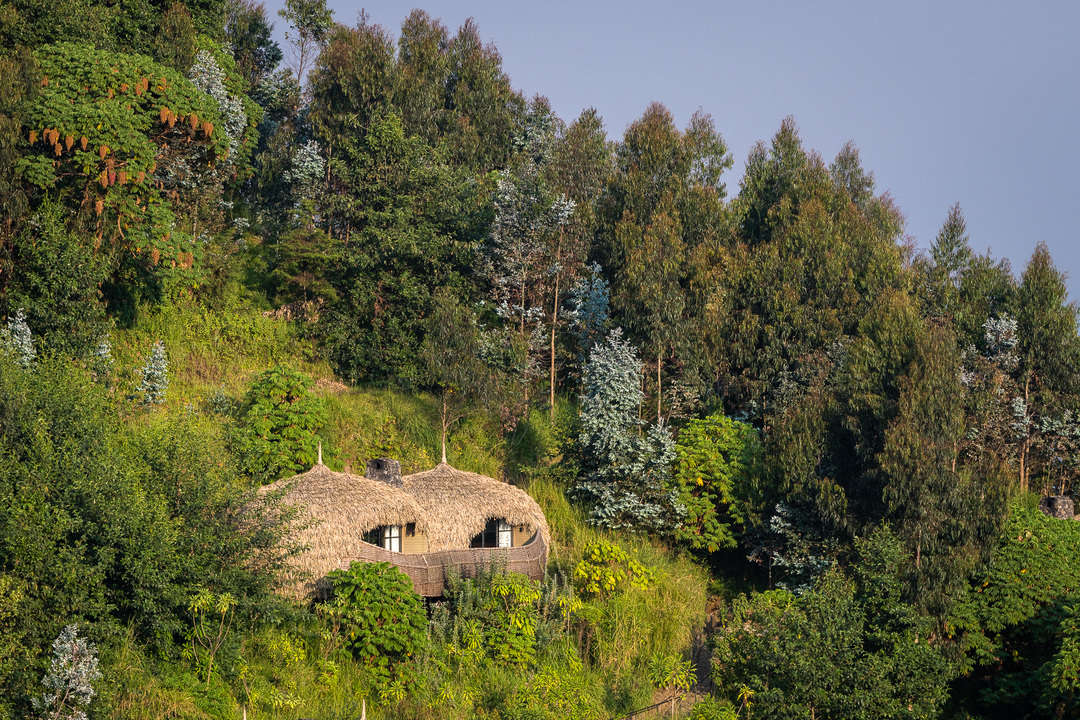
At Bisate Lodge, we have been busy preparing our own reforestation programme. Forty-three hectares of land were purchased in 2015 and 2016, and the reforestation of the property began in early 2017. In the last two years, over twenty thousand indigenous trees have been planted, with the aid of members of the local community, some even together with students of the local primary school. Creating employment in a densely populated area such as northern Rwanda is one of the key benefits of ecotourism and crucial to socioeconomic growth. An early understanding of something such as reforestation for the primary school children is invaluable, as they will surely become the new generation of custodians for the national park someday.
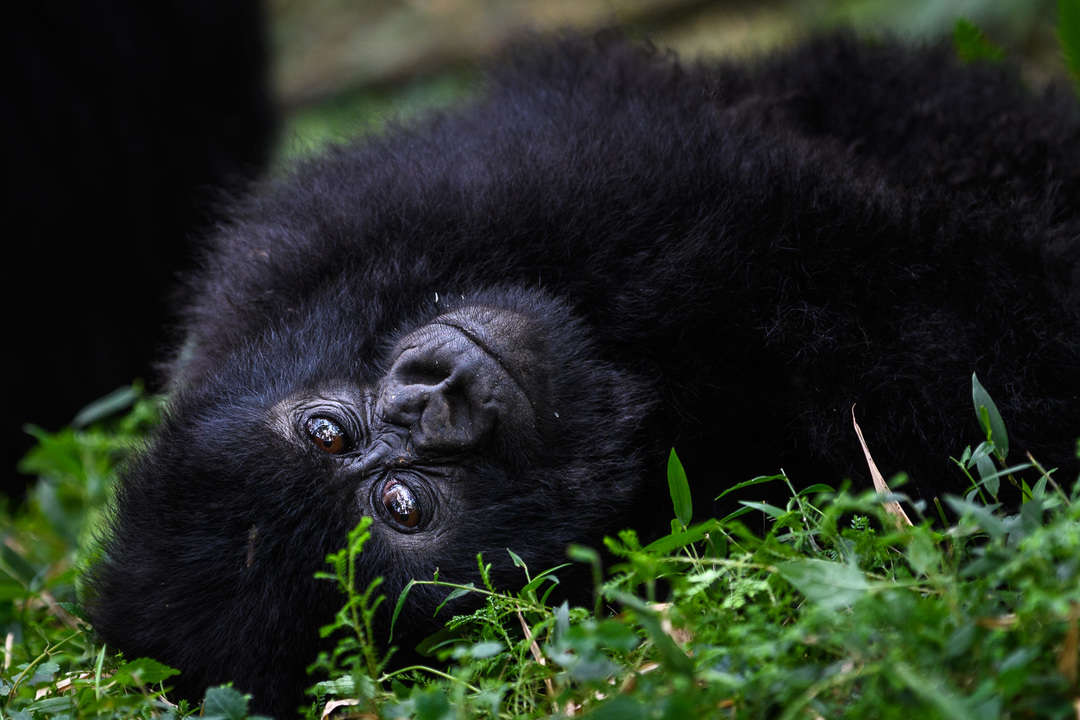
The change from and impact of Bisate’s reforestation is significant. Our species lists grow steadily, day by day. On numerous occasions we have seen forest mammals such as golden monkey, tree hyrax and bushbuck on the property. These animals are moving back into areas they once occupied, and are doing so quickly and willingly; it is apparent to us that they need the extra space.
A member of the Karisoke research team stands beside a sapling he planted less than a year ago
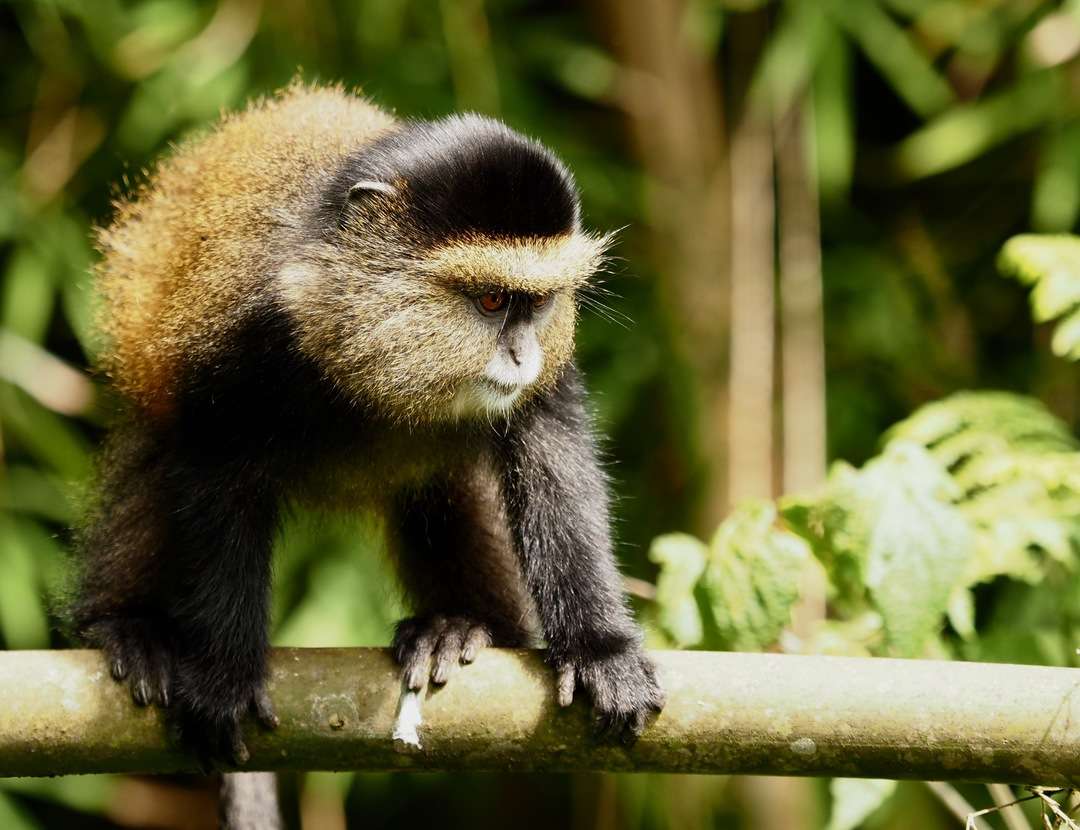
We are also proud to say that, through hours of hard work, our Bisate nursery is now really getting to the point where we can sustainably supply our own reforestation project with saplings that have been grown from seeds harvested on the property. Maybe in future this means that we are able to assist larger reforestation projects in the area too. The nursery currently has about fifteen thousand saplings and countless seedlings in it, enough for the next few years of the programme to run successfully.
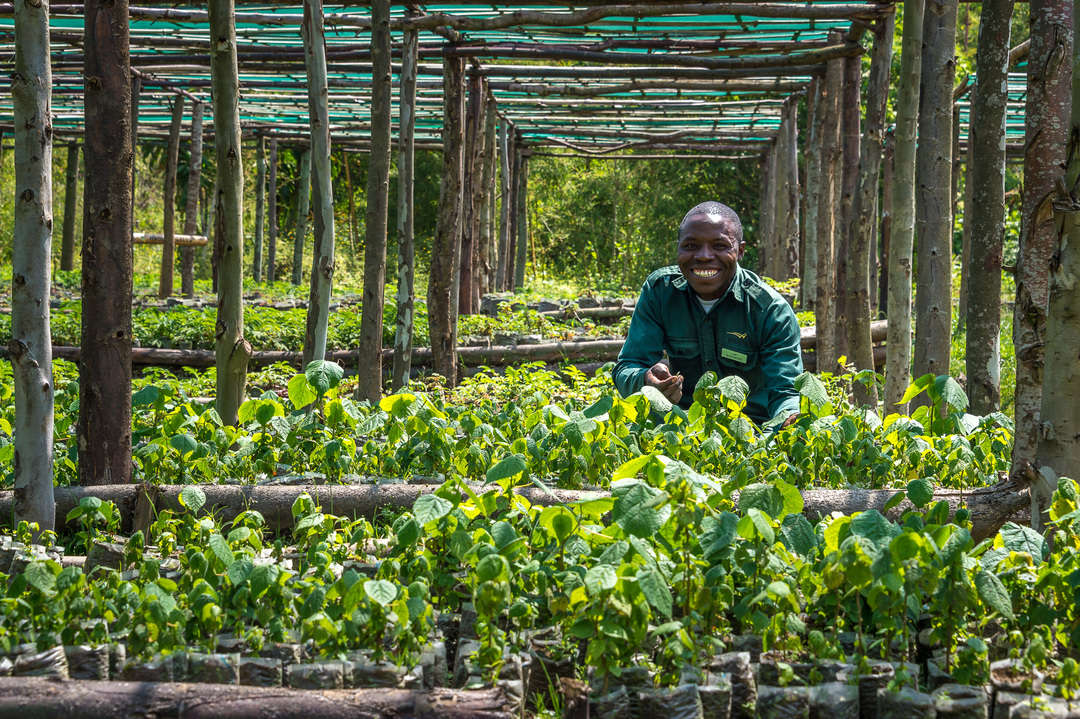
We invite all our guests to participate in the programme and plant trees with us, encouraging them literally to leave their roots in Rwanda. This partially offsets the carbon emissions during guests’ travels here, and also helps them to understand the value of reforestation in this area. The iconic mountain gorilla is almost always the reason that people visit this part of Rwanda, but being able to help communities, assist in projects like the reforestation, and possible expansion of the national park is why most of them return to the country.
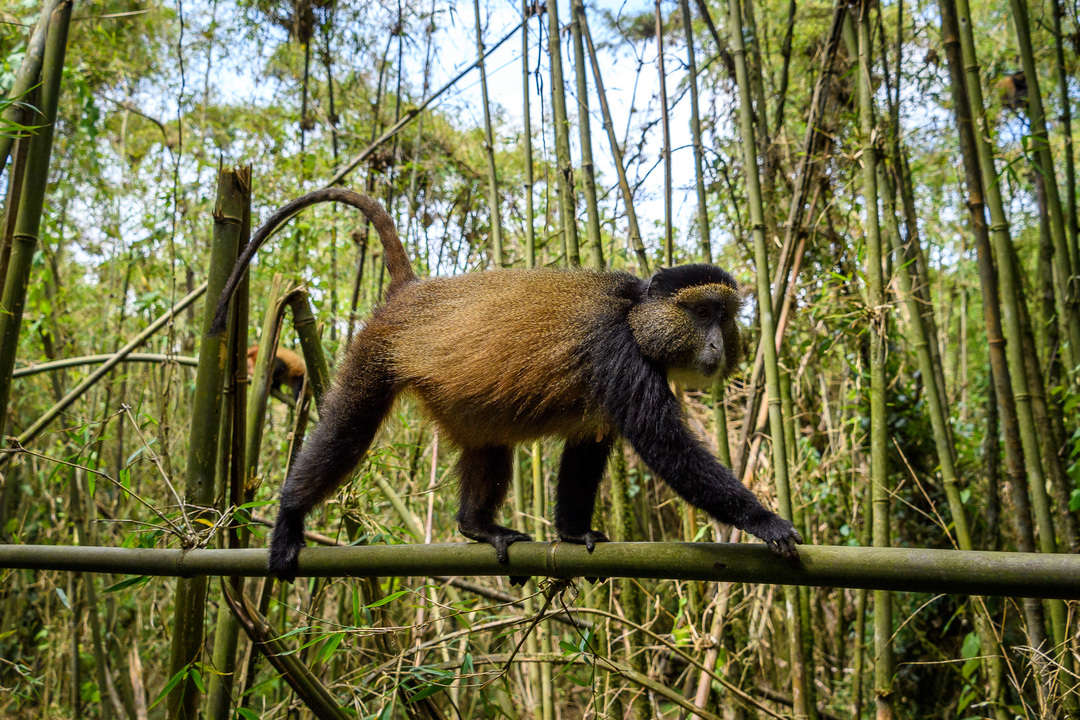
Today, on the International Day of Forests, we would urge everyone to plant a tree, wherever you are. Even if there are no gorillas in your neck of the woods, there is probably a different species very much reliant on this habitat. Including ourselves.
Written by Jomi Krobb, Bisate General Manager

Let’s plan your next journey
Ready?
When we say we’re there every step of the way, we mean it, literally. From planning the perfect circuit, to private inter-camp transfers on Wilderness Air, and easing you through Customs. We’re with you on the ground, at your side, 24-7, from start to finish. Ready to take the road less travelled? Contact our Travel Designers to plan an unforgettable journey.
